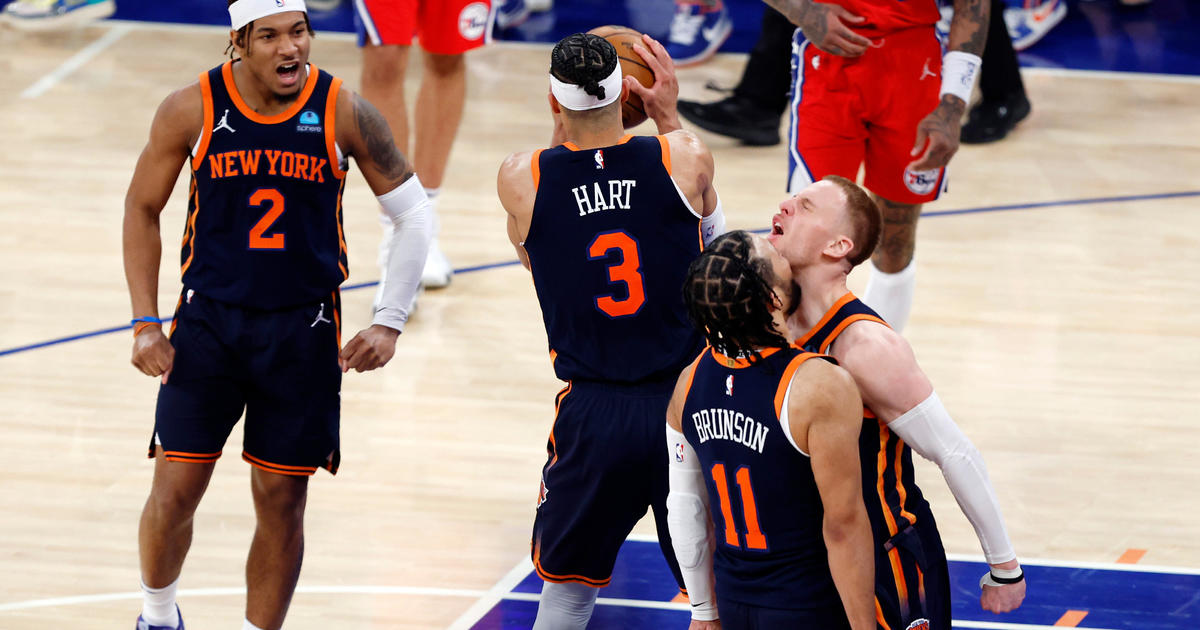Silverman: Home Ice Disadvantage
By Steve Silverman
» More Columns
The pattern has become consistent.
The top-seeded Rangers start their playoff series with a win at home. Not necessarily an impressive win, but they take a 1-0 series lead nonetheless. Then they are unable to match the intensity and effort of their opponent in the second game and they kick away home-ice advantage.
In the first round, they gave the game away to the 8th-seeded Senators. In the second round, the Capitals were the beneficiary. In the Eastern Conference Finals, the Devils were able to get even in the series with a 3-2 victory.
The Rangers didn't play badly, but they didn't match the Devils in their ability to respond quickly to adversity. The Devils got on the scoreboard first when Ilya Kovalchuk snapped home a shot high on the long side past Henrik Lundqvist. End of shutout streak and first goal of the game. Good omens for the Devils right there.
Just as big as getting the opening goal was the way the Devils were moving the puck and shooting it. Instead of the deliberate pace they had in Game 1, every pass was crisp and with a purpose. If the receiver had time and space, the shot was taken. If not, another pass was made.
That's what didn't happen in the first game and the Rangers were able to block shot after shot – 26 in total. This time, the Rangers were not blocking shots at the same kind of pace and finished with 16.
Shot blocking is how Ranger coach John Tortorella apparently measures effort, and when Bryce Salvador wound up to take a slap shot from the blue line and Marian Gaborik did not make sufficient effort to get in front of it, the puck ended up in the back of the net when Ryan Carter deflected it past Lundqvist. Not only did that goal breathe life in the Devils, it kept Gaborik from taking his regular turn on the ice in the third period. His butt was glued to the bench for nearly 13 minutes, which seemed very questionable since the Rangers had fallen behind early in the third period and the Rangers are not the most gifted offensive team.
The presence of Gaborik gives them added speed and the ability to spread the Devil defense and presumably put more pressure on Martin Brodeur. It had to be a fairly momentous decision to sit Gaborik, arguably the team's second-best offensive player behind Brad Richards. Gaborik, of course, scored the historic triple overtime against the Capitals in Game 3 of their second round series.
But there was no discussion of the move by John "I'll Keep It In The Room" Tortorella. His lack of desire to communicate with the media – and the public – has been well-documented. He's rude and nasty and a bad reflection on his sport.
The impact of his childish attitude on his team is debatable. The Rangers have not played consistent hockey and dominated the way the Los Angeles Kings are doing in the Western Conference, but they have survived and advanced despite their inability to sweep the first two home games in each playoff series. (Speaking of the Kings, their head coach Darryl Sutter is no day at the beach either. He may be even more miserable than Tortorella.)
The fact that Tortorella offers nothing to the media probably troubles commissioner Gary Bettman as he contemplates a Stanley Cup Finals between the Kings and the Rangers. The New York-Los Angeles matchup in the last round should be the dream matchup for the league, but with front men like the angry Tortorella and the classic sour puss of Sutter, it could be nightmarish.
But forget about the PR aspect and get back to what is said "in the room." The Rangers may not always get the lesson right away, but they do know how to respond after losing. A better effort and a win in Game 3 would fit in with the pattern the team has displayed thus far in the postseason.
Gaborik may turn out to be the key figure in the next game. He has been called out by his coach before and while he may not like it, he usually responds. He has been resilient and that's certainly the signature of this team.
Don't expect that to change as the series resumes in Newark.
Steve Silverman is an award-winning writer, covering sports since 1980. Silverman was with Pro Football Weekly for 10 years and his byline has appeared in the Wall Street Journal, Playboy, NFL.com and The Sporting News. He is the author of four books, including Who's Better, Who's Best in Football — The Top 60 Players of All-Time. Follow him on Twitter (@profootballboy).



